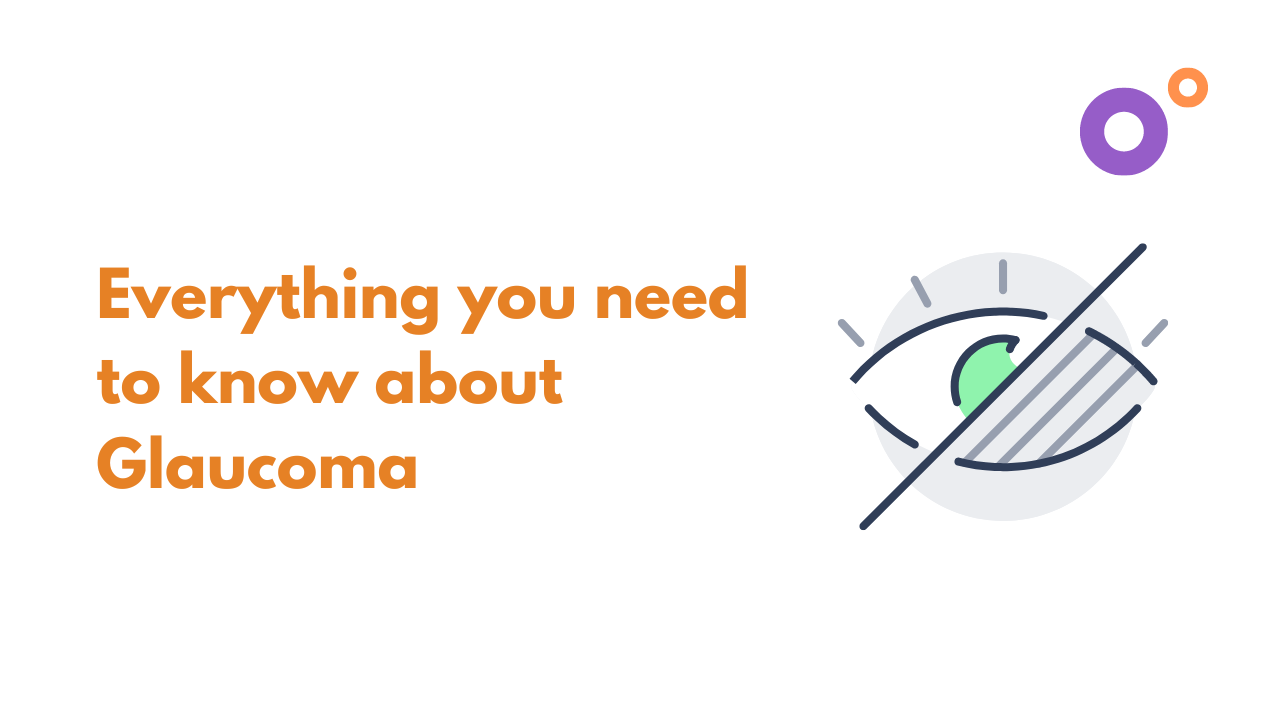
Everything you need to know about Glaucoma
Dr .Peeyush Tiwari MBBS, MS - Ophthalmology Ophthalmologist/Eye Surgeon
Glaucoma is an eye disease which damages the optic nerve eventually leading to blindness. This damage is typically caused by an increase in internal eye pressure (IOP) which gets worst over time. It can cause permanent vision loss or even total blindness within a few years. Glaucoma tends to run in families. There are multiple types of Glaucoma with different dangers for patients based on age and sex. An Ophthalmologist at FirstCure Health will help identify which types you might be most at risk for.
Most people with Glaucoma have no early symptoms or pain and the first step towards prevention is awareness, so keep reading on. The lost vision can’t be brought back but by lowering eye pressure we can help you keep the sight you have.
Symptoms of Glaucoma
However, the three major symptoms of Glaucoma that can be recognized are:
• Loss of peripheral vision
• Decrease in contrast sensitivity
• Eye Pain (for acute attacks)
Glaucoma Risk Factors
• Adults over 40 with a family history of Glaucoma
• Nearsighted or farsighted
• Poor vision
• High eye pressure
• Diabetes, high BP, heart disease or sickle cell anemia
• Certain steroid medications, medication for bladder control or seizures
• An injury to eye or eyes
• Corneas thinner than usual
Screening for Glaucoma
A comprehensive eye exam will evaluate whether or not you are at risk for glaucoma. Risk factors include family history, intraocular pressure, and optic nerve evaluation. If the Ophthalmologist finds one or more of these factors to be troubling, this is a red flag that means you are more at risk for Glaucoma than others.
The most important test is the eye pressure check; this is done with a tonometer. The tonometer can be a probe which touches the surface of the eye or a ‘non-contact’ tonometer which uses a gentle puff of air to read the internal eye.
Treatment of Glaucoma
Glaucoma treatments include medication and surgery. We typically start with medications and then go from there. Treatments include:
• Eye drops to decrease fluid production and increase fluid outflow
• Pills to decrease fluid production and increase fluid outflow
• Surgery to increase outflow of fluid to lower pressure
• Surgery to implant a stent which increases outflow
• Laser surgery can slightly raise the flow of fluid from your eye.
Glaucoma Prevention
You can’t prevent glaucoma but you can lower risk of eye damage if you find it early. These steps may help protect your vision by:
Have regular eye exams for detecting the signs of Glaucoma for timely treatment. All adults need to be checked for Glaucoma every 3 to 5 years. If you are over the age of 40 and have a family history of the disease, get a complete eye exam every 1 to 2 years. If you have health problems like diabetes you may need to go more often.
Learn your family history ask your relatives whether any of them have been diagnosed with Glaucoma.
Follow your doctor’s instructions to use drops to prevent Glaucoma.
Exercise moderately like walking or jogging at least three times a week.
Protect your eyes by wearing protective eyewear when playing sports or working on home improvement projects.